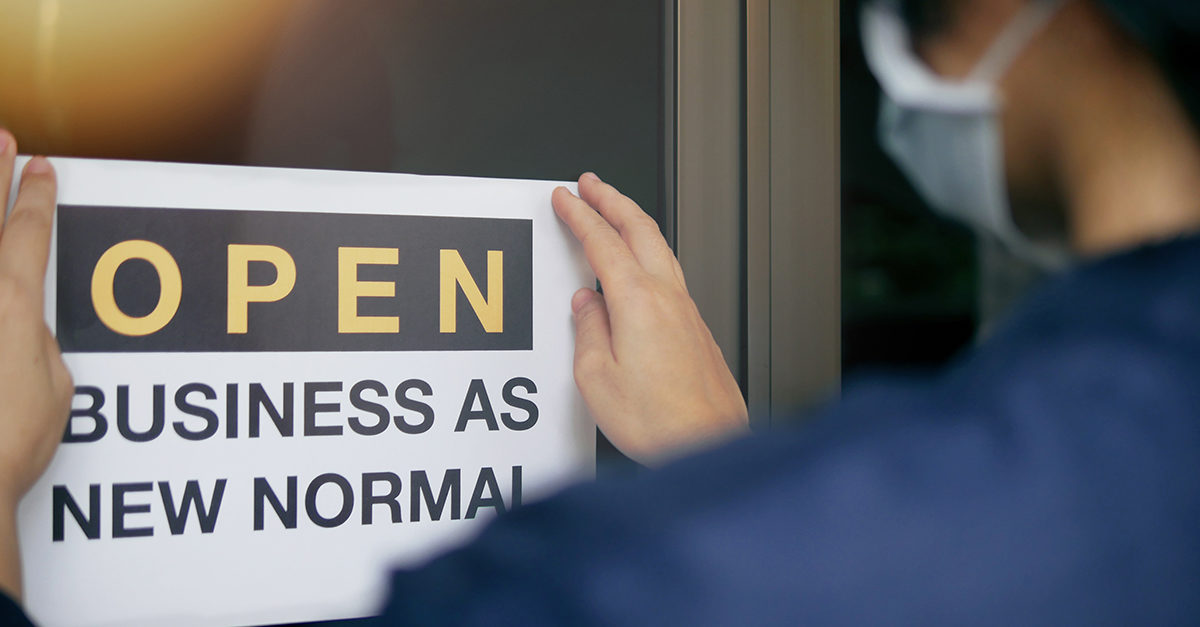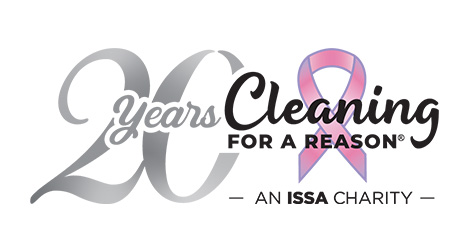The coronavirus pandemic has caused a significant amount of turbulence for businesses. In the spring, most of the United States witnessed weeks, if not months, of economic shutdowns and slowdowns. Many regions are now reopening—some faster than others. A common trend among reopening businesses has been an emphasis on ensuring that buildings are cleaned properly and often.
This fall, whether facilities will continue to reopen or will instead slow down due to a second wave of COVID-19 is still unknown. But whatever happens, cleaning and maintenance professionals need to be prepared.
How to adjust stops and starts in business during pandemic
By following the six essential tips below, you can help your cleaning business weather the storm of possible stops and starts.
1. Prepare for schedule changes and increased cleaning
Traditional contracts don’t typically allow clients to suspend service or stop paying—even during unexpected global events. Realistically, clients are required to pay every month. Some clients may pare down their operations to a skeleton staff and can pay full invoices. Some may request a special payment arrangement when faced with circumstances outside the norm. Others will shut down completely and will pay the bills regardless as required by the contract.
As clients come back, they often seek a one-time deep clean to get them up and running again. Additionally, many clients will want to increase the amount of cleaning, moving from a schedule of two or three days per week to five or even six days per week.
Clients may also want to alter the services they are receiving. Electrostatic spraying, for example, has become a popular way of offering clients a deep clean of hard-to-reach surfaces. This technique uses chemicals that are diluted inside of an electrostatic sprayer. A cleaning professional then sprays the entire surface of an area or object. Positively charged electrons are attracted to the negatively charged surface, binding to it and killing bacteria and microorganisms in the process.
2. Perform temperature checks and encourage COVID-19 testing
Most clients aren’t mandating that professional cleaners have their workers tested for COVID-19. However, you should encourage your workers to visit their doctor for a test, particularly if they suspect they’ve been exposed to the virus. Furthermore, investing in a temperature gun and setting up a process to screen team members can prevent the spread of disease, COVID-19 or otherwise. Above all, workers (and employers) should use common sense; anyone who is feeling sick or running a fever should stay home from work.
3. Clean based on building type
Any place where many individuals come and go is a place where viruses are more likely to be. This makes large stadiums harder to control than small classrooms, which is why sporting events have been canceled while some school facilities are now open or plan to open later in the year.
Schools have always been a hotbed for germs, so disinfecting regularly will not only help protect students and staff from COVID-19, but also lessen the nasty effects of the seasonal flu and the common cold. Traditionally, school custodians have done most of their cleaning at the end of the day. Now, many school districts are increasing their frequencies to include midday cleanings.
4. Prepare for increased demand with additional workers and more shifts
Adding staff to your cleaning team is one way to prepare for a surge in demand—demand that could come from either an increase in cases in the fall or a second wave that is smaller than anticipated, motivating more businesses to reopen. Either way, companies are putting the health and safety of their employees and customers first.
Another staffing issue to prepare for is a potential shortage of workers. Many schools nationwide remain closed or are offering remote learning, and parents are staying home out of necessity. Those who have preexisting conditions or live with family members who do may be hesitant to return to the workforce for health reasons. This reduces the pool of potential workers, at least in the short term, which could make hiring additional staff more complicated than in a normal economy.
To offset these concerns, it’s important for commercial cleaning companies to calm the nerves of workers and educate them about the strong safety measures in place. Companies will need to be competitive with compensation, potentially offering incentives to help fill positions.
5. Take extra precautions
Masks have become essential to reduce the spread of the virus, but accommodating your clients’ guidelines is also important. Each client will approach the pandemic differently. If you have a large team of cleaning professionals, team members should wear masks as cities and states have mandated. However, in regions where masks are not required (and if the client is indifferent) or if workers are on a solo shift, wearing a mask may be left to their personal decision based on their comfort level. Either way, stay informed on what your clients expect and on your local and regional requirements.
6. Be aware of COVID-19 liabilities
Government officials are talking about waiving the claims of those who contract COVID-19 on the job mainly because it’s difficult to precisely trace where someone contracted the virus. If an outbreak occurs at a facility, you should isolate affected team members so they don’t infect others.
Do your best
The top priority of commercial cleaning professionals is to clean facilities to the best of their ability. When your team finishes a job, you can be confident that the facility has been properly disinfected. While person-to-person transmission can’t be completely prevented, providing a clean indoor environment gives your clients confidence that they’re in a safe and clean space.
Cleaning professionals everywhere can be proud that their efforts help contain the spread of the virus and allow businesses to operate safely, contributing to the continued reopening of our economy.




